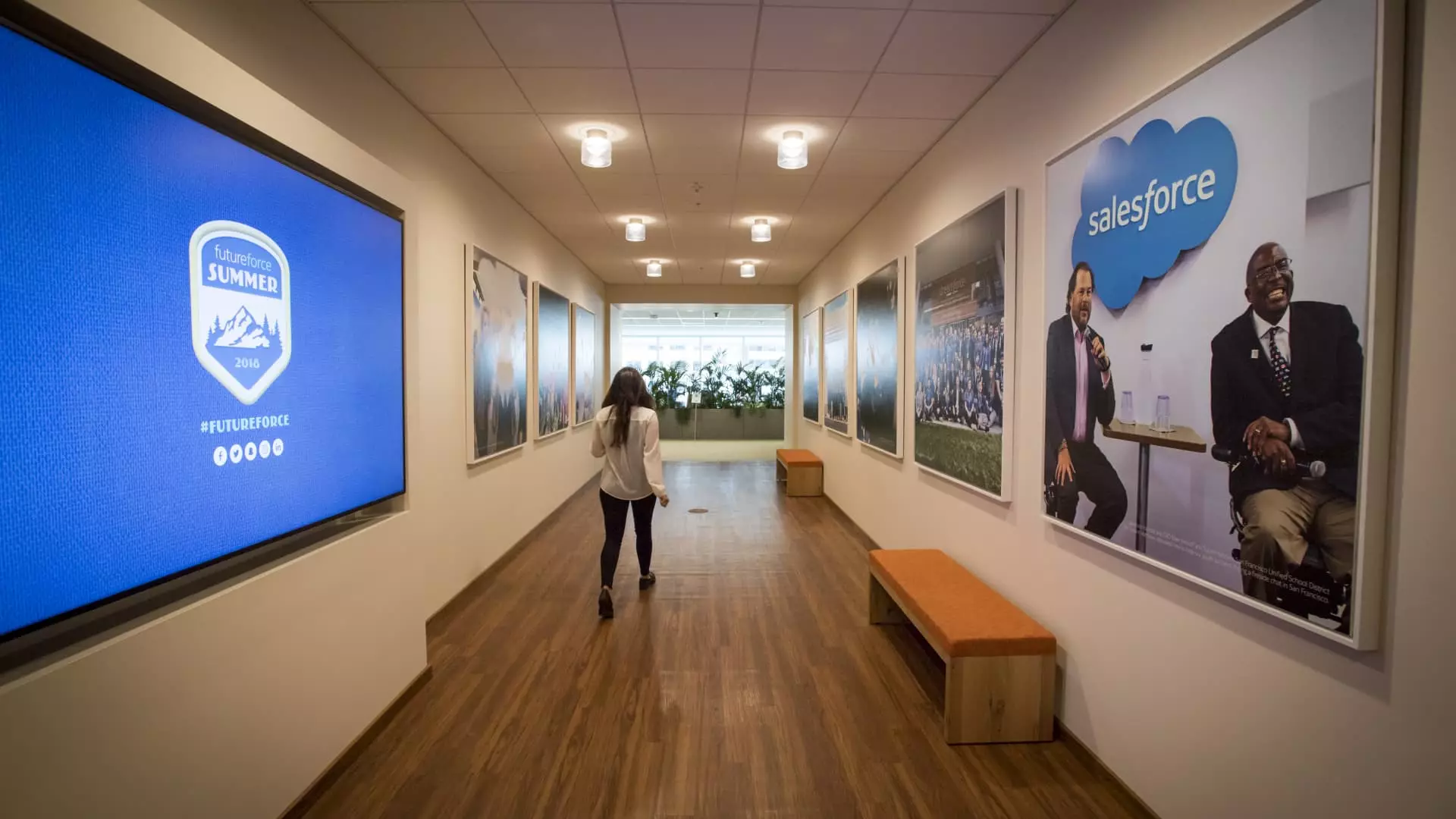Salesforce, the cloud software vendor, experienced a major setback in the stock market as its shares plummeted by 20% on Thursday morning. This marked the worst trading day for the company in nearly two decades. The previous record was set back in July 2004 when shares dropped by 27% shortly after the company’s initial public offering.
The recent nosedive in Salesforce’s stock value followed the company’s fiscal first-quarter report, which fell short of Wall Street’s revenue estimates for the first time in over a decade. Despite a modest 11% increase in revenue to $9.13 billion, analysts had expected a slightly higher figure of $9.17 billion. Moreover, the company’s guidance for the second quarter also failed to meet expectations, with projected adjusted earnings per share of $2.34 to $2.36 on revenue of $9.2 billion to $9.25 billion, compared to analysts’ estimates of $2.40 per share on $9.37 billion in revenue.
While some analysts, such as those at Citi, expressed concern over Salesforce’s performance and reduced their price target on the stock, others, like those at Goldman Sachs, remained optimistic. The latter reaffirmed their buy rating on the stock, emphasizing Salesforce’s potential as a “high-quality software franchise.” They highlighted factors such as easing interest rates, the conclusion of the election cycle, and generative artificial intelligence as growth catalysts. Similarly, Morgan Stanley analysts acknowledged the disappointment caused by Salesforce’s results but maintained an optimistic outlook, particularly regarding the company’s prospects with generative AI in the coming year.
Salesforce’s recent stock plunge has triggered mixed reactions among analysts, with some viewing it as a significant setback while others see it as a temporary obstacle in the company’s long-term growth trajectory. As investors navigate through the uncertainties surrounding Salesforce’s future performance, it remains to be seen how the company will address its challenges and capitalize on its strengths in the evolving tech landscape.


Leave a Reply